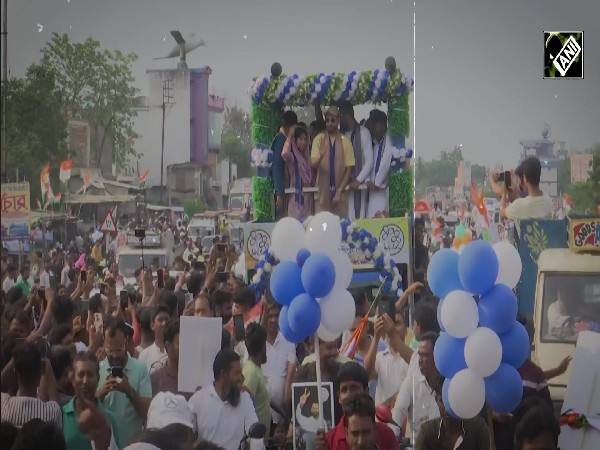Talks between outlawed TTP, Pakistan end in stalemate
Aug 01, 2022

Islamabad [Pakistan], August 1 : The ongoing peace talks between the Tehreek-e-Taliban Pakistan (TTP) and Pakistan government reached a stalemate as the outlawed group refused to give in its demand for the reversal of the merger of erstwhile Federally Administered Tribal Area (FATA) with the Khyber-Pakhtunkhwa province.
An eight-member delegation of Pakistani ulema went to Kabul last month to persuade TTP to further extend their ceasefire with Islamabad. The ulema also met TTP leaders during their stay in Kabul and tried to convince them to soften their stance and extend the ceasefire.
Despite a series of meetings between the two sides in recent weeks to break the impasse, there has also been a stalemate over the issue of TTP laying down their arms in case of a peace deal, The Express Tribune reported.
"There is a deadlock. And the prospects of a peace deal are not bright," a source connected to the peace efforts told the Tribune.
Talks between the two sides began in October 2021 to seek a political solution to the issue. The talks that was held at the request of the Afghan Taliban led to a one-month ceasefire in November. However, the truce could not last long as differences emerged soon.
The TTP sought the release of prisoners involved in terrorist attacks. The Pakistan government did release certain TTP members however the process could not move forward.
Back in June, the proscribed TTP had stated that it would not budge from its demand for the reversal of the merger of Pakistan's erstwhile FATA with the northwestern province of Khyber Pakhtunkhwa.
"Our demands are clear and especially the reversal of Fata merger with Khyber Pakhtunkhwa is our primary demand which the group cannot back down from," the chief of the outlawed group Mufti Noor Wali Mehsud was quoted as saying by Dawn in the video interview.
Since the Taliban took control of Afghanistan, Pakistan has increasingly complained of attacks across the border from Afghanistan, an issue that has become a source of diplomatic tension.
Regional experts say the rise of TTP enabled by the Afghan Taliban's steadfast support will expand the threat of terrorist attacks in Pakistan, including against civilian targets.
Since its founding in 2007, the TTP has emerged as the most influential and violent anti-Pakistan terrorist outfit in South Asia. Unlike its Afghan namesake, the TTP does not enjoy favourable relations with Islamabad.
Despite the organization's pledges to the contrary, international observers have expressed concerns that the Taliban could once again transform Afghanistan into a safe haven for international terrorist organizations, as had been the case prior to the US-led invasion of Afghanistan in 2001.


















